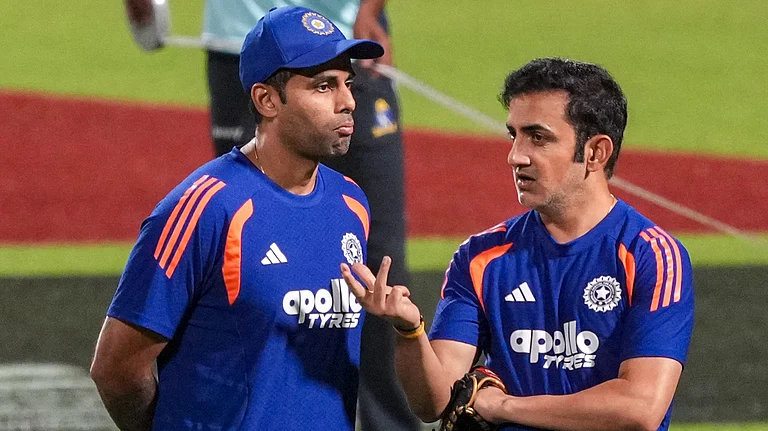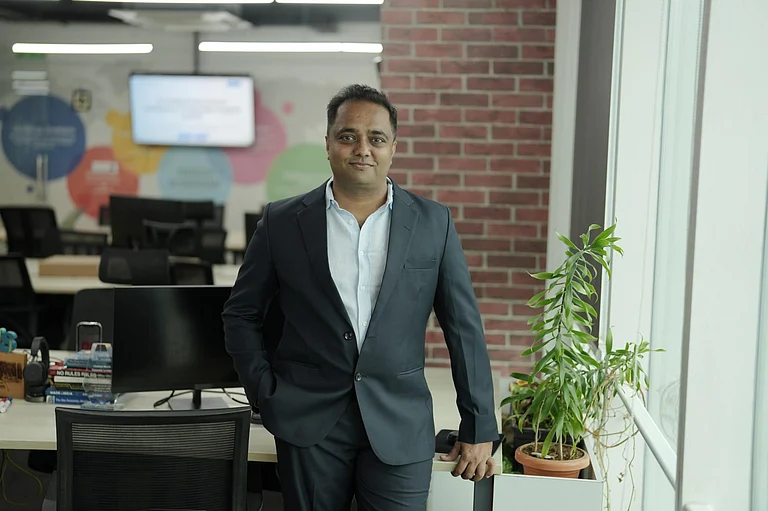
MHA announced that seven major Railway stations will be equipped with AI-enabled FRS CCTV Cameras.
This is expected to enhance criminal tracking, but can also lead to abuse or misuse of critical surveillance data.
AI can also help in preventing stampede and minimising damage in various disasters, says AI expert.
The union government has recently informed the Supreme Court that it plans to install AI-Enabled Facial Recognition Systems (FRS) in seven major railway stations across India.
This decision comes in response to a petition filed by the Supreme Court Women Lawyers’ Association over the increasing number of crimes against women and shockingly low conviction rates in the country. Responding to the petition, the Ministry of Home Affairs (MHA) submitted an affidavit outlining various measures it plans to implement.
These include installing upgraded CCTV cameras with AI-enabled facial recognition and automatic number plate recognition, smart street lighting, and the use of drones to monitor high-risk areas.
The seven major railway stations where this equipment will be first installed are — Mumbai’s Chhatrapati Shivaji Maharaj Terminus, New Delhi Railway Station, Howrah Junction and Sealdah Railway Station in Kolkata, Dr M.G.R. Chennai Central Railway Station, Secunderabad Railway Station, and Bihar’s Danapur Railway Station.
Outlook India spoke to Sanjay Puri, an AI Expert, regarding the opportunities this technological upgradation might provide and also on the privacy and security concerns. Sanjay is a US-based AI regulations expert, founder of several AI-based tech firms, a leading AI advocate and a US-India relations leader. Here’s what an AI Expert says:
Is the present available AI technology capable of doing precise identification, or can it lead to false convictions?
AI-enabled surveillance can aid in tackling crime and reduce dangers. The vulnerable sections of society who are most susceptible to abuse could be provided greater protection with these technological aids.
AI could really prove to be useful in multiple applications, from helping to identify petty thieves and robbers to human trafficking networks. AI-enabled FRS can truly be a blessing for identifying and tracking criminals, including those committing crimes against women. It can increase the conviction rate and potentially also reduce the number of crimes from happening
What are the data security concerns of using such technology, which deals with really sensitive information?
It is essential to ensure that there is no secondary use of the data. And in order to ensure that, strict vendor contracts, independent oversight, mandatory breach notification and onsite audits are crucial. Surveillance data with such high technology is very critical, and it must be ensured that this stays in safe hands.
The credibility of the company manufacturing the software becomes extremely important. I am not sure if this FRS software is being developed by a government firm, a private Indian firm or a foreign firm.
What are the necessary security measures to be followed?
It is vital that onsite audits are conducted regularly, data gets deleted after a certain period unless otherwise needed, data is sitting on Indian servers, and access points to the data are limited and highly secured.
These factors become even crucial when dealing with any foreign vendor. India might not yet have the technological infrastructure like the US and Europe, but India has the technical ability to make sure that it conducts periodic audits. There are technologies to assess if this data is being abused or misused.
What would you say about the infringement on the privacy of citizens? Do citizens get to have a stance on such matters?
Privacy concerns are not negligible in these regards when it comes to ordinary citizens. Making sure that citizens are clearly aware of what they are consenting to is something that techies, media and government all should ensure.
Today, AI-enabled FRS may seem uncomplicated, but tomorrow, in the wrong hands, that same information can be misused and abused. People need to know what they're signing up for. One’s face or image is everything; that's their identity. And it should not be exploited, because identity is practically everything.
Additionally, if someone does not consent to be captured, then there has to be an option. Other means of checking, whether it's a physical checking or a manual screening option must be available. People need to be allowed to preserve their privacy.
There is a saying, ‘Privacy is a myth’. What is your opinion on that?
I think with the use of AI, it is getting more and more difficult not to leave a digital footprint unless you live in a cave without any digital devices. AI can find digital footprints very fast, no matter where it is out there.
It can be facial recognition data, financial transactions, online interactions, social media activities, or movements of a vehicle that is registered under one’s name. AI is capable of combining them; it can now cross-match, precisely track and even predict the movement and actions of individuals.
AI is also accessing social media feeds in real time. It is a fact that today, the biggest indicator of what is happening around, in many cases, is the social media feeds of numerous individuals worldwide.
Leaving aside FRS, what else is AI capable of doing in the direction of public welfare?
AI has great potential in disaster management and panic prevention. We know how satellite weather forecasting has revolutionised weather prediction. It has enabled providing early information to farmers — increasing crop safety.
It has helped to save the lives of fishermen who go to the sea for their livelihood. It has helped reduce casualties due to early intimation of warnings in high-risk areas. Now, think about what combining AI in this domain can do.
It can revolutionise constant monitoring and prediction. Bringing Machine learning together with satellite data, drone imagery, geospatial data, and social media information can do wonders in minimising damages as well as casualty counts.
How can AI contribute to preventing panic during disasters?
On one hand, AI will enable authorities to precisely identify areas that need immediate response, combining data from multiple sources. On the other hand, it would enable the people in the affected areas to access precise information on where the response teams are in real time and what initiatives the government are taking for them.
It would empower those affected to access information in their native language instead of English being bombarded on them, which they might not be able to understand.
Can AI help in stampede prevention?
Not just disasters like floods and earthquakes, I believe AI can also help in preventing stampedes, something that India is currently experiencing more of. Stampedes have mostly resulted from the uncontrolled gathering and spreading of misinformation. I believe both of these can be taken care of using AI as software and AI-enabled CCTVs and drones as hardware components.
How optimistic are you about the AI capabilities of India in the public domain?
What India has been able to do with Aadhaar card and other such initiatives is really impressive. It is not an easy job to bring such a large population into a unified database platform that also has every citizen’s crucial biometrics.
If that has been made possible, I believe upgrading to AI-enabled FRS is also possible. In India, if ten-minute deliveries are possible from that box of biscuits to blankets, solutions to stop people from rushing and creating stampedes should also be possible, whether it is a concert, a stadium, the largest religious gatherings or even elections.
And if maintaining data security has been possible for Adhaar, it should also be possible for FRS.


























